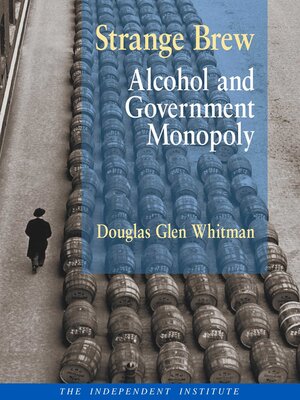
Sign up to save your library
With an OverDrive account, you can save your favorite libraries for at-a-glance information about availability. Find out more about OverDrive accounts.
Find this title in Libby, the library reading app by OverDrive.



Search for a digital library with this title
Title found at these libraries:
| Library Name | Distance |
|---|---|
| Loading... |
After Prohibition ended in 1933, many states passed laws regulating the sale of alcoholic beverages, now known as Franchise Termination Laws. Ostensibly intended to protect wholesalers from shady suppliers, and the public from the harmful effects of alcohol, these laws in fact created government-protected monopolies.
In Strange Brew, one of the first studies of this topic, economist Douglas Glen Whitman subjects these laws to critical scrutiny.
Strange Brew demonstrates that the "monopoly protection laws" in the alcoholic beverage industry reflect powerful special interests in the political process who use such measures to restrict markets, shield themselves from competition and consumer preferences, and set higher prices with relative impunity. It also shows how the notion that alcohol consumption is a "sin" in need of legal restraint substitutes the choices and moral judgment of politicians for that of consumers.
In Strange Brew, one of the first studies of this topic, economist Douglas Glen Whitman subjects these laws to critical scrutiny.
Strange Brew demonstrates that the "monopoly protection laws" in the alcoholic beverage industry reflect powerful special interests in the political process who use such measures to restrict markets, shield themselves from competition and consumer preferences, and set higher prices with relative impunity. It also shows how the notion that alcohol consumption is a "sin" in need of legal restraint substitutes the choices and moral judgment of politicians for that of consumers.







